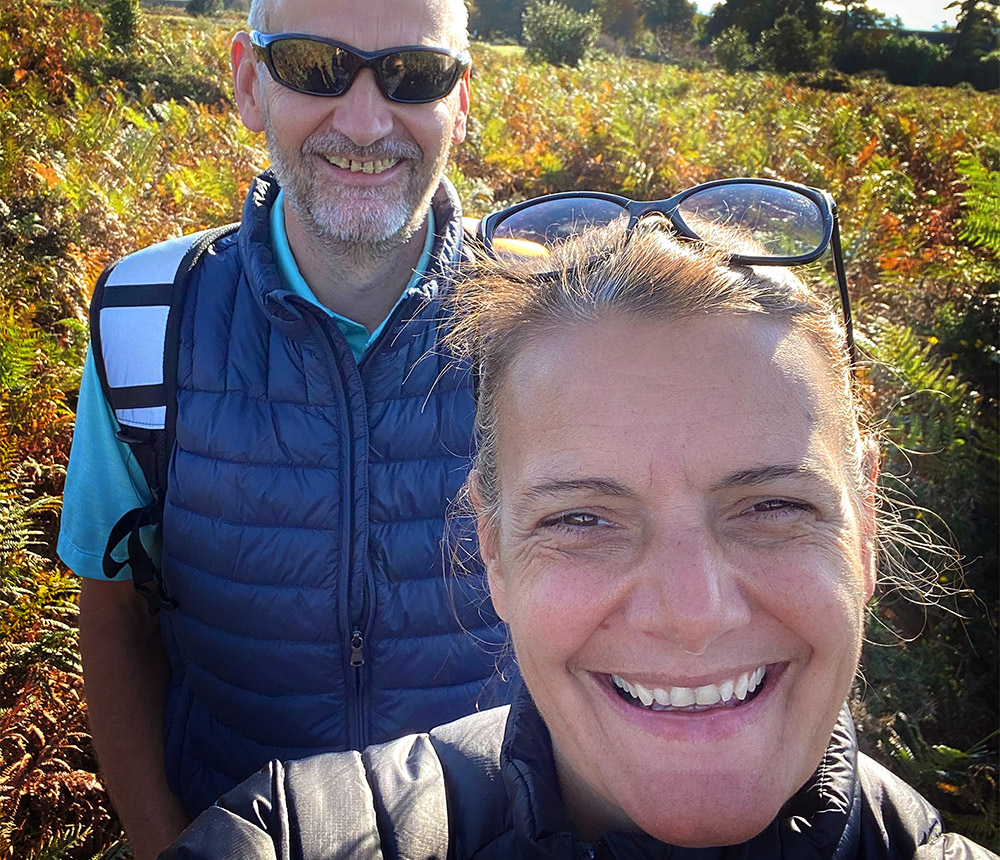The idea of opening your home to a total stranger to share your daily life may sound odd or even fanciful. Right now, however, there are 53 people in Dorset who are doing just that, as part of a long-running but little-known care service.
Shared Lives is a form of support and accommodation for people which originated in Liverpool in the 1970s although its origins can be traced back to 14th-century Belgium, when it was decided that people with mental ill-health should live in the community. Now, the Care Quality Commission-regulated service means that people with additional care and support needs can move in with a family, couple or even a single person’s home to live with them; eating together, perhaps watching the TV or going down the pub and joining the local community.
Shared lives carers are paid for the support they provide which can include four weeks’ paid holiday each year and Dorset Council’s Shared Lives officer, Michelle Manvell, is looking for more of them. “Basically, you have a service user in your home with you as part of your family,” she explains. “It’s literally sharing your life, sharing your home, family, community with the person.”
The service user would have their own room but share most meals with the carer and a little of their social life although, as Michelle points out: “As part of our contract with the Shared Lives Carer, we ensure the person who lives with them must have three days of meaningful activities outside the house.
“People have personal care or other support needs and are referred by their social worker,” she says. “There is no pressure for a carer to accept a person, it’s all about the match. A lot of work goes in to ensuring that carers and service users are a good match and a placement can go ahead.”
All placements are risk-assessed to protect both shared lives carers and service users, she says. Carers are supported through a rigorous assessment process which involves training, comprehensive checks and going to a panel for approval, which normally takes around four months. Service users are asked about their preferences, says Michelle. “Some want to live with a family, others may only want to live with one person, or they might have ideas about the area they want to live in.”
They are also asked about things such as pets. “We’re trying always to get as good a match as possible,” says Michelle, explaining that matching visits help to ensure people have a chance to get to know each other before a placement begins. Service users can be aged 16 and upwards and carers can have up to three people with them if they have the room in their home, says Michelle. The scheme also provides respite and day care opportunities and it is up to each carer to decide which of these services they would like to offer.
“Service users can use Shared Lives as a stepping stone to greater independence and may choose to move on to more independent living,” says Michelle.
However, others may decide to continue to live in a family-type situation, with people who have children, people who don’t have them, or households with just one other person. Carers can be homeowners or live in rented accommodation and they come from all walks of life, says Michelle. She works with three generations of shared lives carers who grew up watching their parents and grandparents take part. What she doesn’t have is enough carers to meet the demand from service users who’d like to live this way.
“It can be a difficult concept to get your head round at first,” she says. “It’s a bit like fostering as it is based around your home and it’s not like being a conventional paid carer. But once people start, they usually love it.”
About Andy and Lin
Andy Keal and his wife, Lin, who are both nurses, live near Wimborne. They are about to welcome their first, full-time Shared Lives person “I heard about Shared Lives from a friend,” says Andy. “I was fascinated and said to Lin that I thought it was an opportunity to live a completely different life.” She agreed and the couple registered with Dorset Council around two years ago. “It took about a year but we were both reassured by that, because it was a very thorough process,” says Andy. They were able to talk to other Shared Care participants. “We wanted to know about any downsides, so we took our time,” he says. Through this process, the couple describe the council as ‘absolutely brilliant’. “Our council contact, Sarah, is always there for us and answers all our questions,” says Andy. He and Lin were realistic about the shared aspect of the care: “We had one man who could potentially move on to independent living but most people probably won’t have the ability to do that, or might not even want to,” he says. Before meeting anyone, the couple would be provided with the profiles of the suggested service users but, Andy says: “Sometimes, reading a profile is not enough, you’re best off meeting people, as they can behave differently in their own family or other situation.” Through this, he says, they have welcomed a diverse range of respite visitors; a younger man with mild learning disabilities, people with Down Syndrome and some older service users. As a ‘quiet’ family, Andy says they’ve preferred to be matched with people who enjoy quieter pursuits, from visiting Wimborne Town Football Club, to going out to the local garden centre for a cup of coffee and a browse. “One chap who stayed loved walking, and because we like it too it was great, we had some good walks by the river. “We think that if we see it as a job then it might become a tie but if we regard it as sharing our life with someone and can find the right person to fit in with our family, it is far more rewarding. That’s exactly what’s happening for us!” Things have gone so well that Andy has handed in his notice and the couple are looking forward to welcoming their first permanent Shared Lives service user. “He is a lovely man from a lovely family who was being looked after by someone who became poorly,” Andy explains. Find out more about Shared Lives by calling 01305 221393
By Faith Eckersall
newsdesk@stourandavon.net










Leave a Reply